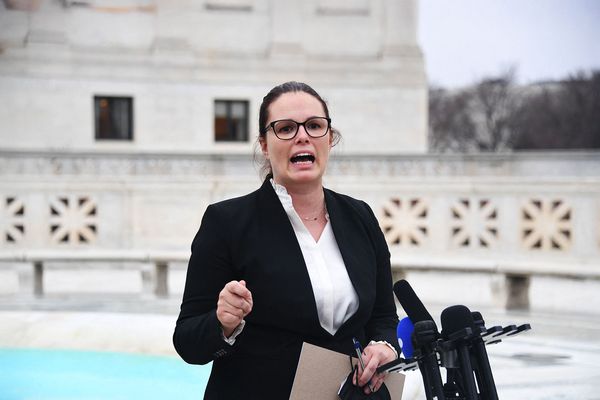Here are five things you must know for Wednesday, June 22:
1. -- Stock Futures Slump As Inflation Woes Mount
U.S. equity futures slumped lower Wednesday, potentially giving back most of yesterday's solid gains, as investor focus returned to the impact of speeding inflation on global economic growth.
Fresh inflation readings from South Africa to Great Britain indicated that central bank action, at least to date, has had little impact on consumer price pressures, while digging into the readings showed a broadening of their effects, particularly in the United Kingdom.
The prospect of slower growth for the world's major economies was also linked to a weaker session for Asia stocks, which fell sharply amid concern over a new round of Covid restrictions. That sent the U.S. dollar firmly higher in overnight trading and established the 'risk-off' narrative that pulled futures lower.
The U.S. recession debate has intensified, as well, following data from the Atlanta Fed showing essentially no growth in the domestic economy this quarter, following a 1.5% contraction over the first three months of the year, alongside a slow by steady increase in weekly jobless claims, stalled consumer spending and a weakening housing market.
Europe's region-wide Stoxx 600 was marked 1.55% lower in early Frankfurt trading, following on from a 2.3% slide for Asia's MSCI ex-Japan benchmark.
In the U.S., benchmark 10-year Treasury bond yields held at 3.228% in overnight trading, against a 3.153% peg for 2-year notes, while the dollar index rose 0.20% against a basket of six global currencies to 104.64 in early European trading.
On Wall Street, futures tied to the Dow Jones Industrial Average are indicating a 360 point opening bell slump while those linked the S&P 500, which is down 21% for the year, are priced for a 54 point decline.
Futures linked to the tech-focused Nasdaq are looking at 195 point opening bell pullback.
2. -- President Biden Calls For Federal Gas Tax Holiday
President Joe Biden said Wednesday he will ask Congress to suspend the federal gas tax for at least three months, while asking states for similar relief, in order to ease a key component of domestic inflation in the world's biggest economy.
Federal gas taxes add around 18.4 cents per gallon to unleaded pump prices, as 24.4 cents to diesel, with the revenue collected used in part to fund highway and infrastructure projects.
The widely expected move clipped global oil prices in overnight trading -- alongside the impact of new Covid infections in China and the prospect of further business and factory restrictions -- with WTI crude futures for August delivery falling $4.97 in overnight trading to $104.55 per barrel.
Data from the AAA motor club, meanwhile, indicated that U.S. gas prices eased from this week's all-time high to a national average of around $4.955 per gallon last night, a move that still leaves pump prices some 61.8% higher than this time last year.
3. -- Fed Chair Jerome Powell Faces Capitol Hill Grilling on Inflation
Federal Reserve Chairman Jerome Powell will begin two days of testimony on Capitol Hill Wednesday, and a likely grilling from lawmakers, as inflation continues to grip both global financial markets and mainstream U.S. politics.
Powell will face members of the Senate Banking Committee today at 9:30 am Eastern time, with a follow-on sitting before the House Financial Services Committee Thursday, amid the fastest pace of domestic inflation in more than four decades - and just four months ahead of key mid-term election that could see Republicans regain control of both Houses of Congress.
Lawmakers are likely to press the Fed Chair on his previous assertion that inflation pressures would be 'transitory', while also seeking clarity on how -- or indeed if -- the current strategy of interest rate hikes and liquidity withdraw will slow the pace of broadening inflation pressures.
Powell's latest change-of-heart, which saw the Fed Chair orchestrate a 75 basis point rate hike last week after essentially guiding markets to an increase of no more than 50 basis points, will also be in focus during today's testimony,, as will the impact of rate hikes on broader U.S. growth, which has raised the possibility of a near-term recession.
"We're not trying to induce a recession now. Let's be clear about that," Powell told reporters in Washington lats week. "We're trying to achieve 2 percent inflation consistent with a strong labor market. That's what we're trying to do
3. -- Boeing Shares Slide As CEO Cautions on Supply Chain Challenges
Boeing (BA) shares moved lower in pre-market trading after the planemaker cautioned that supply chain disruptions will likely continue until at least the end of next year.
Speaking at Bloomberg's Qatar Economic Forum in Doha, CEO Dave Calhoun said aircraft demand is surging, thanks in part to firm rebound in post-pandemic travel, but labor and part shortages will make it difficult for suppliers to meet customer needs.
"The shift from demand to now supply issues (has been) remarkable," Calhoun said. "It's been a real issue for both manufacturers and will probably stay that way in my view almost to the end of next year."
Last week, Boeing reported deliveries of 29 737 MAX jets for the month of May, with overall deliveries of 35 aircraft, as it prepares for crucial summer air shows in Paris and Berlin with what Calhoun described as "demand for airplanes as robust as I’ve ever seen it."
The planemaker's overall order backlog was pegged at 4,192 aircraft, Boeing said, up marginally from the same period last year.
Boeing shares were marked 2% lower in premarket trading to indicate an opening bell price of $134.00 each, a move that would extend the stock's year-to-date decline to around 33%.
5. -- Blockchain Payments Group Roxe Plans Nasdaq SPAC Merger
Blockchain payments group Roxe is planning to go public through a merger with SPAC group Goldenstone Acquisition in a deal worth around $3.6 billion.
The merger, which will test investor appetite for both special acquisition company deals as well as broader enthusiasm for anything touching the cryptocurreny markets, will see Roxe stockholders rolling all of their investment into the newly-named entity -- Roxe Holding Group-- which will trade on the Nasdaq.
Roxe, which was founded in 2019, uses its own digital tokens to connect banks and other payment firms through its own private blockchain.







